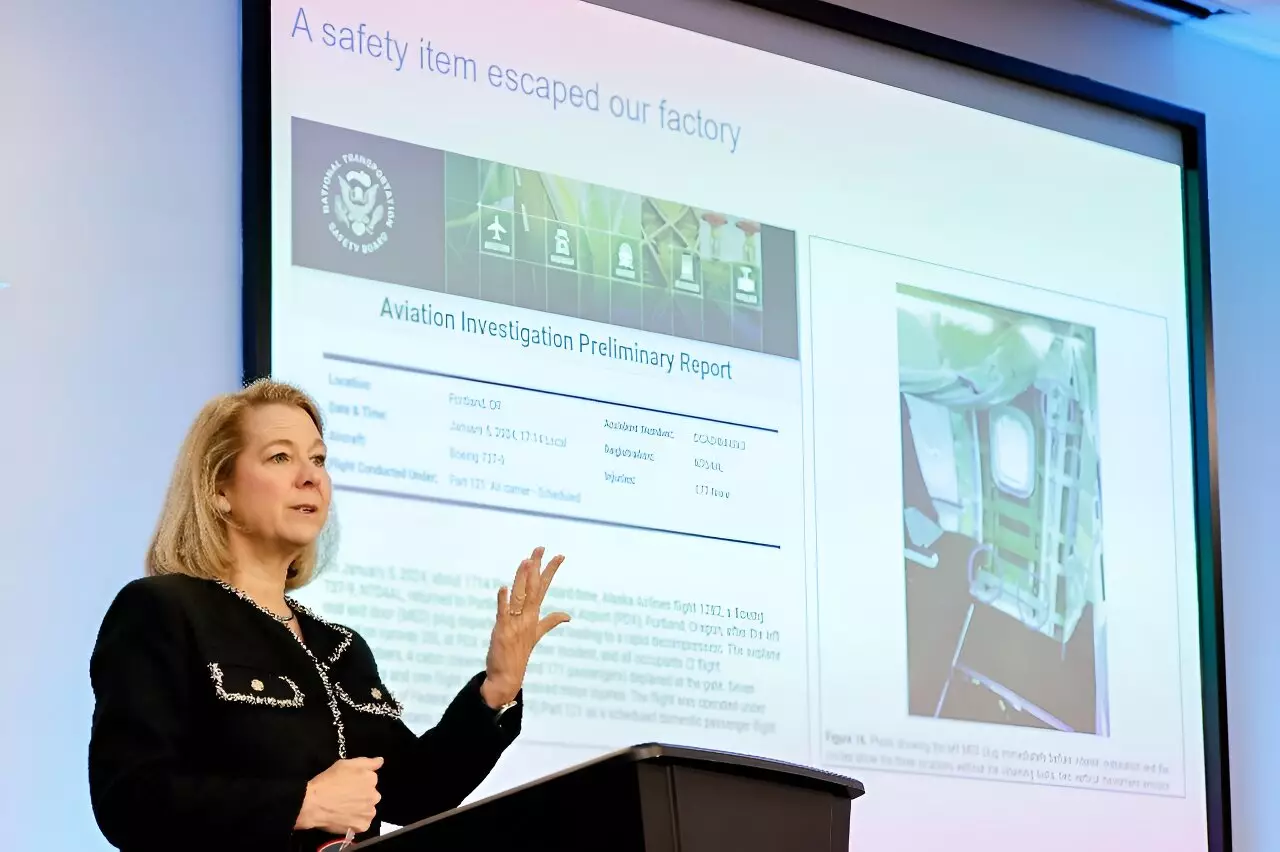Boeing recently faced sharp criticism from the National Transportation Safety Board (NTSB) for sharing confidential information about an ongoing investigation into a serious aviation incident. The NTSB accused Boeing of violating investigative regulations and breaching a signed agreement by discussing non-public information with the media and speculating on possible causes of the incident. As a result, the NTSB has decided to block Boeing from accessing information gathered in the investigation and from participating in an upcoming investigative hearing.
In response to the NTSB’s rebuke, Boeing issued an apology and expressed its willingness to cooperate with the investigation. The company acknowledged its mistake in sharing confidential information with the media and emphasized its commitment to safety and quality control. Boeing stated that it regretted overstepping the NTSB’s role as the primary source of investigative information and reiterated its readiness to answer any questions as the investigation continues.
The NTSB clarified that its primary focus was on determining the probable cause of the aviation incident rather than assigning blame to any individual or organization. The agency expressed concerns about comments made by Elizabeth Lund, a senior vice president for quality at Boeing, during a media briefing. Lund’s remarks regarding the lack of documentation and the responsibility for the door plug work were seen as misleading and potentially detrimental to the investigation.
In light of Boeing’s unauthorized disclosure of investigative information, the NTSB announced that it was coordinating with the Department of Justice (DOJ). The DOJ is expected to take action against Boeing for potential violations of a deferred prosecution agreement related to previous MAX crashes. The NTSB will provide the DOJ with details about Boeing’s recent unauthorized disclosures, signaling possible legal consequences for the aerospace giant.
The incident involving Boeing’s mishandling of investigative information serves as a cautionary tale for corporations operating in highly regulated industries. It underscores the importance of respecting the authority and processes of investigative agencies like the NTSB and maintaining transparency throughout the investigation process. Moving forward, Boeing will need to reassess its communication protocols and compliance with investigative procedures to avoid further complications and legal repercussions.
The Boeing investigation debacle highlights the delicate balance between corporate transparency and investigative integrity. While Boeing’s misstep in sharing confidential information has led to significant repercussions, it also serves as a valuable lesson in navigating the complexities of high-stakes investigations. By acknowledging its mistake, cooperating fully with the NTSB, and implementing stronger safeguards for information sharing, Boeing can work towards rebuilding trust and upholding safety standards in the aviation industry.


Leave a Reply